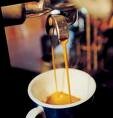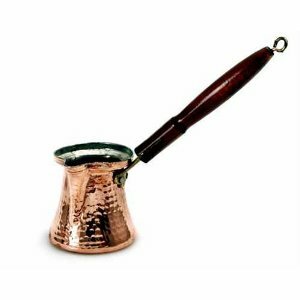How to Brew Good Coffee
 When the question is asked “How to make good coffee”, the immediate responses can be both opinionated and varied. Just as five rabbis in a room are likely to give ten different opinions, each coffee snob has his own particular method or techniques. The taste of your brew will vary depending on the type of machine you use, and each of the different machines requires different tweaks and tricks to extract the absolute best out of your coffee beans. However, whether you use a drip coffee maker, a percolator, french press or automatic coffee machine, there are some key factors common to all:
When the question is asked “How to make good coffee”, the immediate responses can be both opinionated and varied. Just as five rabbis in a room are likely to give ten different opinions, each coffee snob has his own particular method or techniques. The taste of your brew will vary depending on the type of machine you use, and each of the different machines requires different tweaks and tricks to extract the absolute best out of your coffee beans. However, whether you use a drip coffee maker, a percolator, french press or automatic coffee machine, there are some key factors common to all:
Clean, aerated water
Use cool or room temperature water. If the water is good enough to drink, use it. If you don’t like its plain taste, it is better to use filtered water. Avoid bottled water, unless you have no choice. The issue here is that bottled water often has a lower oxygen content, and this is important in the chemical processes that happen in a brew. If you must use bottled water instead of tap water, it is worth pouring the water into a jug from a height of a couple of feet (if you can do it without messing!) so that the splashing action will re-oxygenate the water.
The ri ght temperature
ght temperature
Whilst tea is best made with water on the boil (above 96 deg C), the flavour of coffee is significantly affected when the water is too hot. The ideal temperature for the perfect brew, which releases the optimum mix of taste chemicals, is 93-95 Deg C (195-205 Deg F). This is particularly important with percolators, as it is easy to apply too much heat.
A clean coffee machine
Like any oil, coffee oils can go rancid, so it is really important to clean your pot, filter basket and the water spouts just above the filter regularly. Descale your machine once a month, and more if you live in an area with hard water.
Good coffee!
You may have a taste for dark roast or mild, but whatever it is, go for quality. Make sure that you get vacuum sealed beans or ground coffee, not the kind that is displayed in supermarkets in plastic bins. When coffee is exposed to air, the oils that give the rich flavor evaporate quickly. Choose a brand that has a good name, although opinions may vary on which is the best. It costs more, but it is worth it!
You should also try to use freshly ground coffee, and keep your beans in the freezer, to minimise the evaporation of the essential oils.
